Health
-
Lin Test
text with link. This is a quiz. Some text Name Name Quo modo autem philosophus loquitur? Tecum optime, deinde etiam cum mediocri amico. Invidiosum nomen est, infame, suspectum. Name Name…
-

Gender-affirming care is rare, study says
Fewer than 1 in 1,000 transgender youth receive hormones or puberty blockers

-

Nature offers novel approach to oral wound care
Slug’s sticky mucus inspiration behind adhesive hydrogel that can seal wounds in wet environment

-

Time for a rethink of colonoscopy guidelines?
Change informed by new findings would help specialists focus on those most at risk, researcher says

-

Should pharmacists be moral gatekeepers?
‘The problem is not opioids,’ says author of ‘Policing Patients’ — it’s overdose, pain
-

The deadly habit we can’t quite kick
Actions by tobacco companies worry researcher even amid ‘dramatic decrease’ in smoking among young Americans

-
What’s behind aggressive breast cancer
Harvard scientists at Dana-Farber Cancer Institute have identified an overactive network of growth-spurring genes that drive stem-like breast cancer cells enriched in triple-negative breast tumors, a typically aggressive cancer that is highly resistant to current therapies.

-
ADHD linked to substance abuse risk
In a long-term study by Harvard researchers, data support the association between childhood ADHD and substance abuse risk.

-
Earthly extremes hint to life elsewhere
Scientists are examining single-celled organisms in extreme environments for clues to what life might look like on the myriad planets being discovered in the universe.

-
Coffee tied to lower prostate cancer risk
Men who regularly drink coffee appear to have a lower risk of developing a lethal form of prostate cancer, according to a new study led by Harvard School of Public Health researchers.

-
Using medical technology wisely
A former White House official says health care technologies are ready to serve medicine, but the challenge will be ensuring that such innovations do not deepen existing disparities in care.

-
The battle of the butts
Gregory Connolly and the HSPH Center for Global Tobacco Control conduct research around the world to illuminate ongoing health problems caused by tobacco.

-
Old specimens, fresh answers
A project details changing levels of mercury in endangered albatrosses and highlights the importance of museum specimens in understanding past conditions.
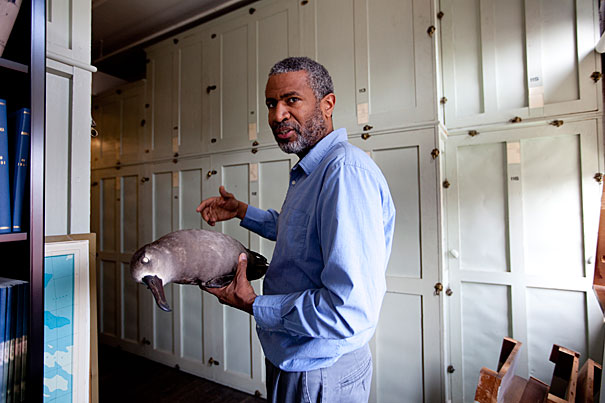
-
First U.S. full face transplant patient
Dallas Wiens, who in March became the first person in the United States to receive a full face transplant, described the simple joys of holding his daughter, Scarlette, and smelling lasagna again as he prepared to leave Harvard-affiliated Brigham and Women’s Hospital Monday (May 9) for his Texas home.

-
Health reform may require a crisis
ABC’s medical editor Timothy Johnson, M.P.H. ’76, predicted sweeping changes to the nation’s health care system, but not before a budget calamity caused by rising health care costs forces politicians’ hands.
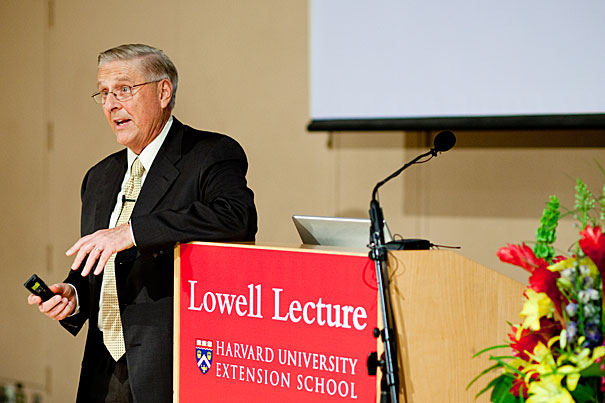
-
Twin dangers: Malnutrition and obesity
Experts in nutrition gathered at Harvard Medical School to discuss the emerging “double burden” of malnutrition and obesity that is starting to affect the developing world.

-
Cancer cells’ survival kit
Harvard-affiliated scientists at Dana-Farber Cancer Institute have discovered new details of how cancer cells escape from tumor suppression mechanisms that normally prevent these damaged cells from multiplying.
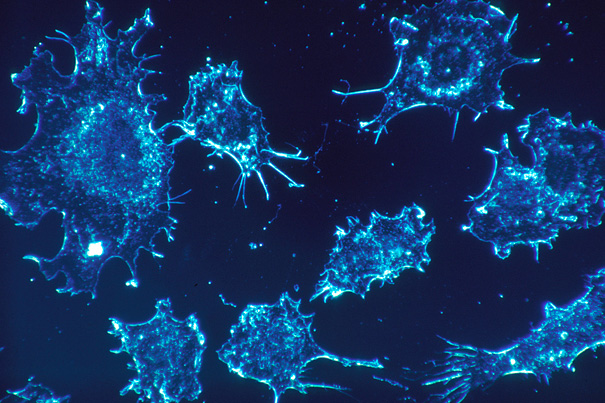
-
Eradicating malaria a tall order
Eradicating malaria from the planet is a tall order, according to a roundtable discussion on the topic that marked World Malaria Day.

-
RNA dynamics deconstructed
RNA plays a critical role in directing the creation of proteins, but there is more to the life of an RNA molecule than simply carrying DNA’s message.
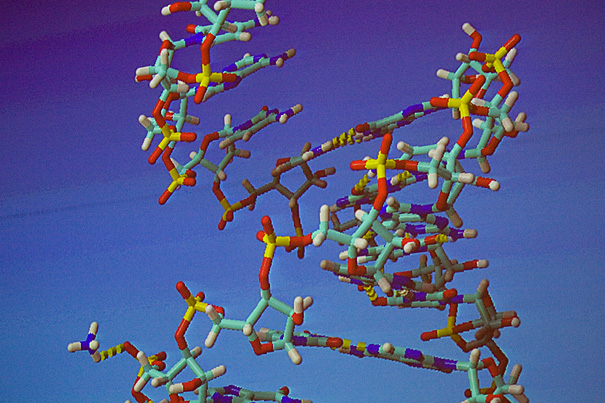
-
‘Turn down the volume’
The positive effects of mindfulness meditation on pain and working memory may result from an improved ability to regulate a crucial brain wave called the alpha rhythm. This rhythm is thought to “turn down the volume” on distracting information, which suggests that a key value of meditation may be helping the brain deal with an often overstimulating world.

-
Texting their way to better health
A student project seeks to improve maternal and child care in India by using the proliferation of cellphones in rural areas to remind women to visit local clinics.
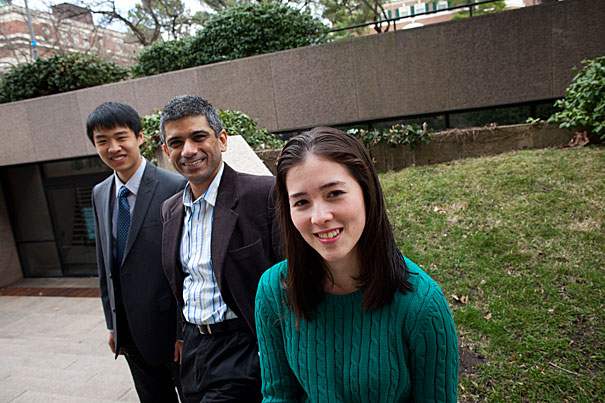
-
Better blood
An innovative experimental treatment for boosting the effectiveness of blood stem-cell transplants with umbilical cord blood has a favorable safety profile in long-term animal studies, according to Harvard Stem Cell Institute scientists at Dana-Farber Cancer Institute, Beth Israel Deaconess Medical Center, and Children’s Hospital Boston.

-
One vaccine for two strains?
Harvard Medical School researchers believe that identifying the properties of the herpes viruses found in Africa could open the door to developing a more potent vaccine against an infection now rampant in sub-Saharan Africa.
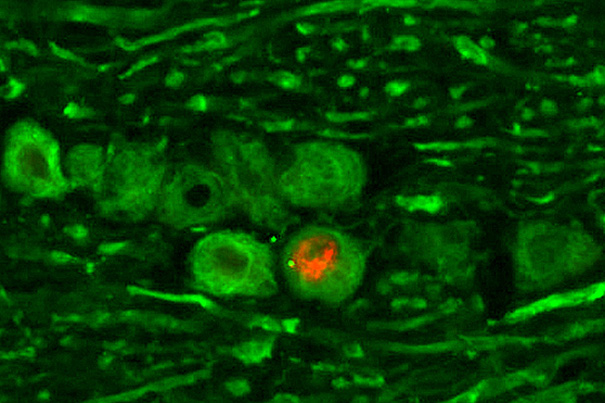
-
Speeding up biomolecular evolution
Scientists at Harvard University have harnessed the prowess of fast-replicating bacterial viruses, also known as phages, to accelerate the evolution of biomolecules in the laboratory.
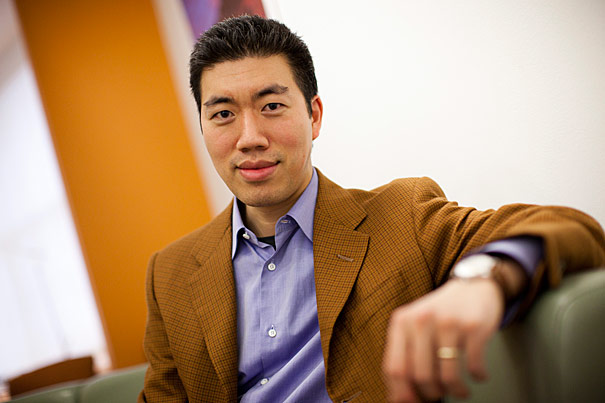
-
Helping the heart help itself
Stem cells being transfused into post-heart attack patients may not be developing into new heart muscle, but they still appear to be beneficial. Some stem cells in the bone marrow, called c-kit+ cells, appear capable of stimulating adult stem cells already present in the heart to repair damaged tissue.
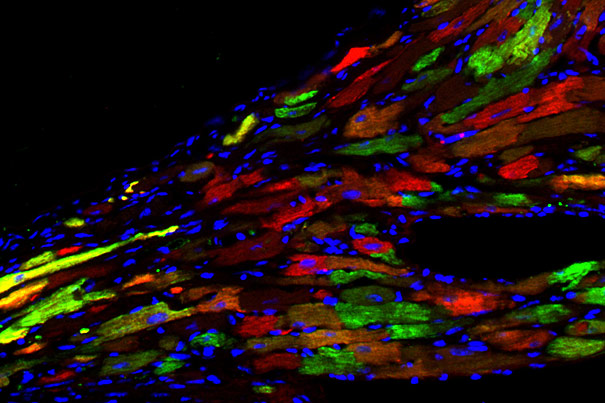
-
Debunking a myth
Studying dead women’s cut-up bodies was not what Katharine Park originally set out to do. But a trip to Florence opened a new chapter in the scholar’s life.

-
The improbable appears promising
A section of the AIDS virus’ protein envelope once considered an improbable target for a vaccine now appears to be one of the most promising, new research by Harvard-affiliated Dana-Farber Cancer Institute scientists indicates.
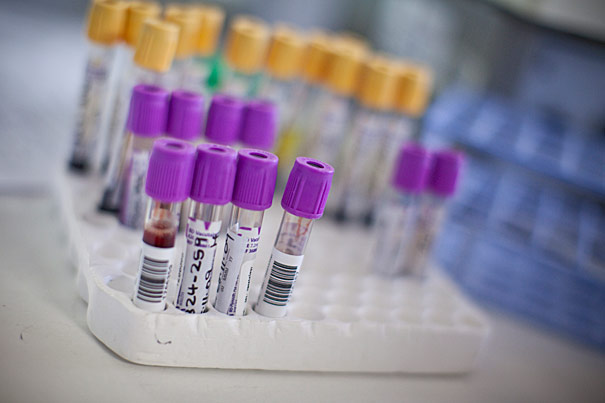
-
New hope for the cure
For the 20 percent of patients with so-called triple-negative breast cancer, the outcome is bleak. Now, however, researchers from Harvard Medical School (HMS) and Baylor College of Medicine have identified a critical molecular component to the disease, one that suggests potential therapies involving combinations of FDA-approved, readily available drugs.
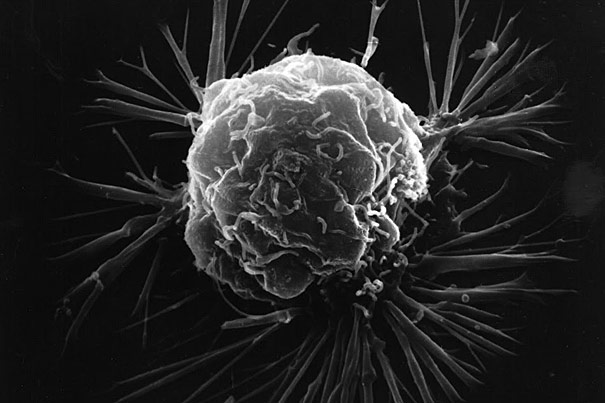
-
Brain changes found in normal elders
Harvard-affiliated researchers using two brain-imaging technologies have found that apparently normal older individuals with brain deposits of amyloid beta — the primary constituent of the plaques found in the brains of Alzheimer’s disease patients — also had changes in brain structure similar to those seen in Alzheimer’s patients.
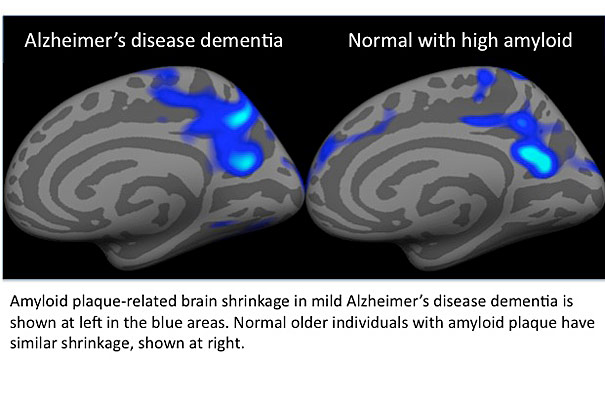
-
Dose response
In a Harvard School of Public Health webcast, researchers used a recent federal report to start a conversation on vitamin D. How much is enough, and how much is too much?
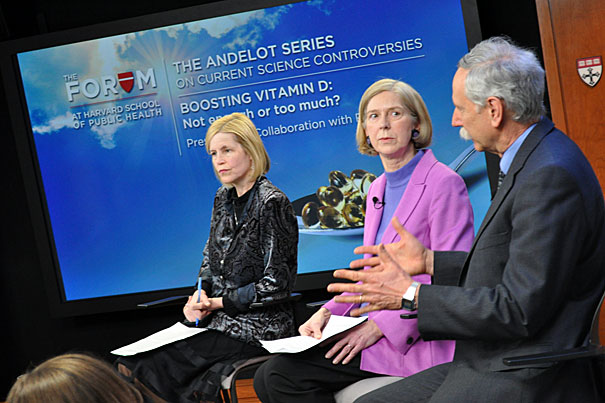
-
Kidney close-up
Scientists at Harvard have created breathtaking three-dimensional images of an entire organ, moving a step closer to understanding the complex development of the kidney.

-
Progress against melanoma
Harvard stem cell researchers at Children’s Hospital Boston have taken two important steps toward development of a new way of treating melanoma, the most virulent form of skin cancer.
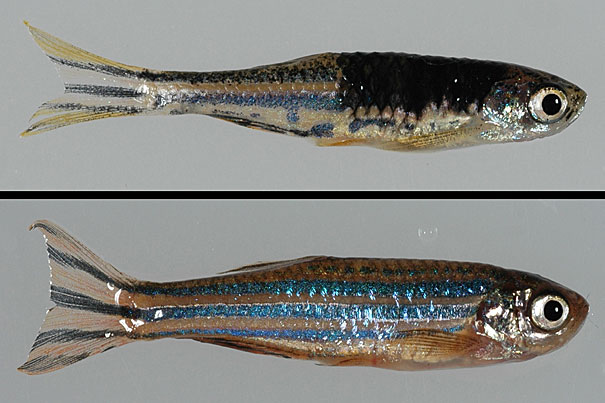
-
Studying the roots of life
Key amino acids important for biological life are among the ones most easily formed in nature, according to Ralph Pudritz from McMaster University.
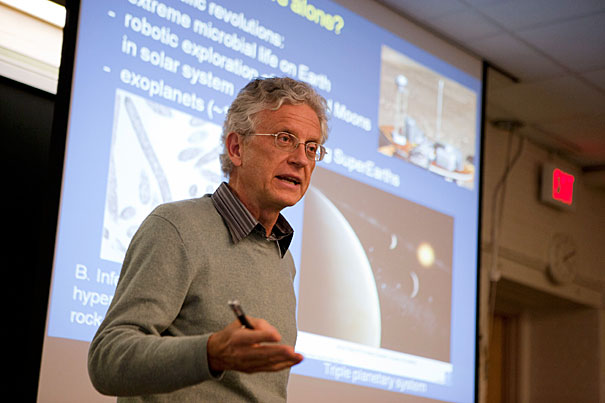
-
Benefits of eating fish tip the scale
In a new, large-scale study from Harvard School of Public Health and Brigham and Women’s Hospital, researchers found no evidence that higher levels of mercury exposure were associated with higher risk of coronary heart disease, stroke, or total cardiovascular disease in two separate studies of U.S. adults.

-
Multiple myeloma genome unveiled
Harvard scientists have unveiled the most comprehensive picture to date of the full genetic blueprint of multiple myeloma, a form of blood cancer.

-
‘Circuits of sense and sensibility’
A Harvard biologist succeeds in mapping a neural network for learned olfactory behavior, using a roundworm model to trace the dislike of a particular smell to the reaction that avoids it.


